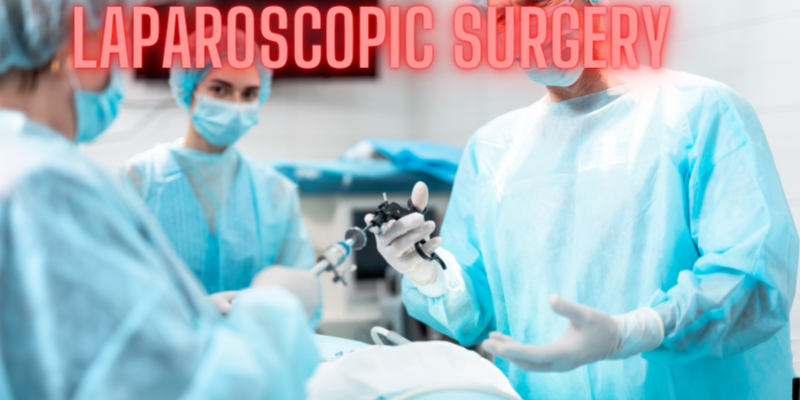WHY IS LAPAROSCOPIC SURGERY DONE?
2022-07-18 / RG STONE HOSPITAL / Single Incision Laparoscopic Surgery (SILS)

Surgery is one of the most effective medical treatments for serious health problems. Traditional surgeries frequently result in large scars and a protracted healing process. Every patient who undergoes surgery wants to stand up as quickly as possible. Laparoscopic surgery benefits being alive in a time of constant technological innovation and the living sphere. Laparoscopic surgery is a minimally invasive and painless procedure. Different surgical procedures, as well as diagnostic management, are needed to treat various illnesses and symptoms. Laparoscopic surgery uses many tiny incisions that you might not anticipate. Laparoscopic surgery is performed by a skilled surgeon in cases where the patient complains of various stomach problems and surrounding areas, such as the pelvic cavity.
Laparoscopic surgery is a contemporary procedure that promises to address some underlying abdominal or pelvic health conditions more quickly and less painfully. When doing laparoscopic surgery, small incisions are made, and a laparoscope is used to view and capture the insights of the organs in the abdominal region. The laparoscope is a long, slender device with high-intensity light and a camera with excellent resolution that can be moved easily over organ wall surfaces. The camera images are returned and shown to the doctor on a video screen. Gallstones, the appendix, and the removal of numerous abdominal organs are among the many abdominal conditions for which laparoscopic surgery is employed. Doctors can easily detect any disease, including abdominal disorders and abnormal growth.
The main benefit of laparoscopic surgery is that it heals with little scarring on the patient’s body. With this advanced surgery method, the surgeon can pinpoint the exact location of the incision, resulting in the least amount of bodily intrusion possible. People frequently forego surgery because of postoperative pain, which might worsen their health. Smaller incisions, less blood loss, and minor discomfort during laparoscopic surgery can reduce patient apprehension. More extended hospital stays of a week or more are needed for recovery after traditional surgery. However, a patient can only stay in the hospital for two or three days following laparoscopic surgery. Smaller incisions decrease the danger of infection, which reduces the chance that patients will be exposed to outside toxins during surgery. The doctor advises laparoscopic surgery for the healthy reconstruction of the bile duct, changing the course of the tumor-blocked bile duct, rebuilding the gastrointestinal tract, and stitching the jejunum to the pancreatic duct.
RG Stone Hospital is the best laparoscopic hospital in India, with the most delicate medical equipment, ensuring 100% safety and hygiene. Patients can experience the best medical treatment with our qualified and skilled team of laparoscopic surgeons.
Categories
Hernia Repair
Appendicitis
Piles
Urological Treatment
Hernia treatment
Enlarged Prostate (BPH)
Gall Bladder Stone
Urinary / Kidney Stone
Vitamins
Indian Health Care System
Exercise
Obesity
Female Urinary Incontinence
Single Incision Laparoscopic Surgery (SILS)
Kidney Cancer
Bladder Cancer
Ovarian cancer
Nephrology
Bariatric Surgery
Kidney Function Test
Female Urology
Radiation Therapy
Alcoholic Fatty Liver
Liver disease
Gastroenterology
Kidney Disease

